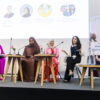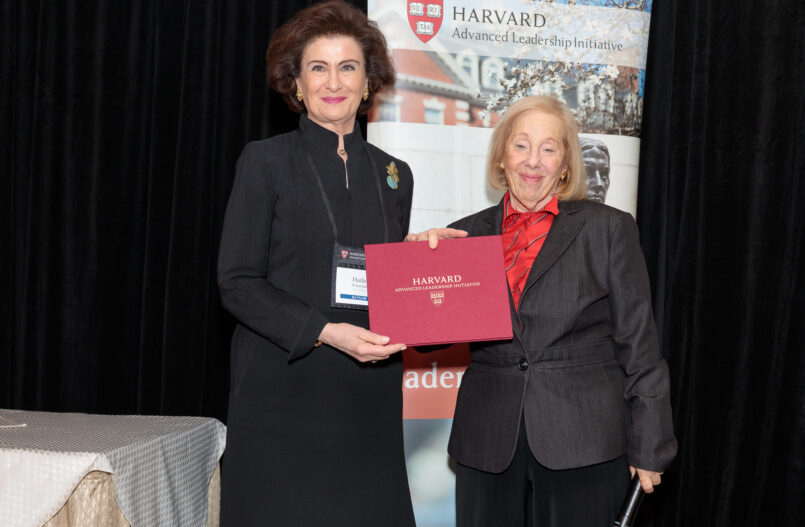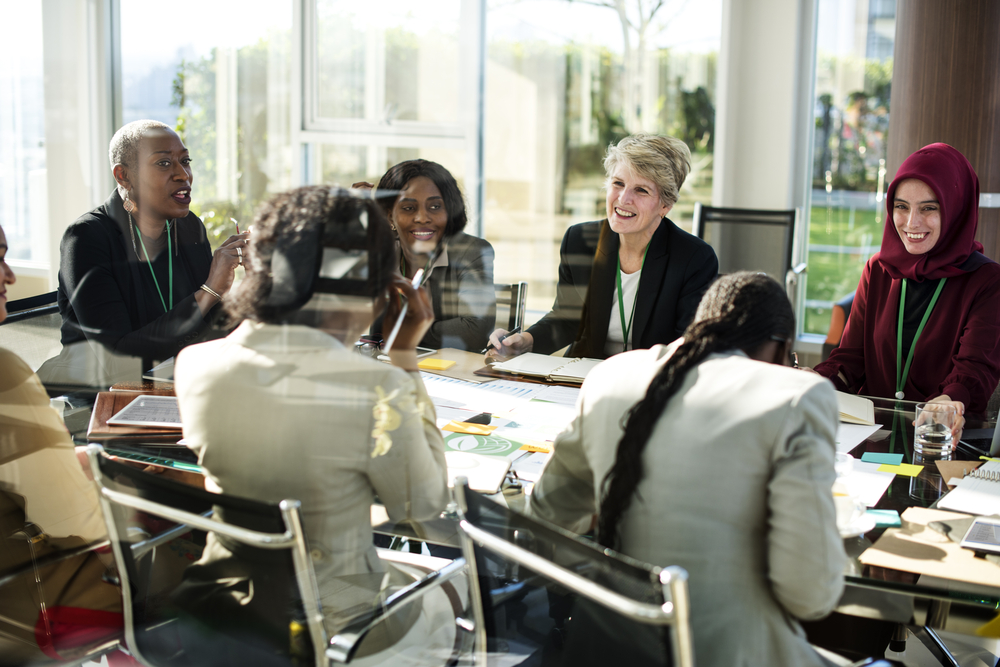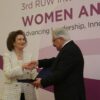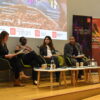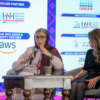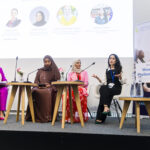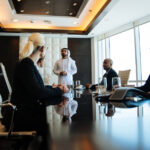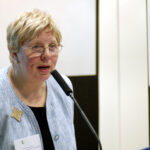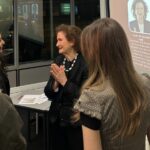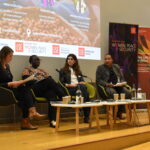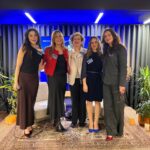AIWF is proud to announce that in November 2017, Haifa Al Kaylani, Founder & Chairman of the Arab International Women’s Forum, completed her year-long Fellowship of the Harvard Advanced Leadership Initiative with a special two-day concluding programme culminating in a certificate ceremony at Harvard University led by Director and Chair of the ALI Programme at Harvard University, Rosabeth Moss Kanter.
It was announced by AIWF in January 2017 that Haifa would be based in Cambridge, MA for the year to undertake the Harvard Advanced Leadership Initiative as a 2017 Fellow. The Harvard ALI Programme is an exciting new ‘third stage’ in higher education, designed to prepare experienced global leaders to take on new challenges in the social sector and carry the impact made in their careers forward towards even greater societal good. Launched in 2009 and supported by Faculty from Harvard’s Schools of Business, Education, Government, Law, Medicine and Public Health, ALI aims to tap into the experiences of a socially conscious generation of leaders, to help ‘redirect and broaden their skills to fill critical leadership gaps in solving major social issues’.
This year’s selected ALI Fellows formed the ninth cohort of the programme, coming from diverse sectors and backgrounds with outstanding records of achievement and accomplishment. The ALI Fellows spent the year at Harvard to transition from their earlier careers and prepare for the next phase of leadership as change agents working collaboratively towards a better future for the next generation of young leaders.
During the concluding programme, Haifa had the opportunity to present her Harvard Advanced Leadership Initiative Special Project, titled ‘Ploughing New Ground: Sustainable Agriculture in the MENA Region’, will be launched in Jordan as a pilot project in early 2018. The project provides an innovative model for sustainable development through agriculture and aims to revive a critical sector in the MENA region, sustainable agriculture, to enhance food security, conserve scarce water resources, create job opportunities for local communities (both men and women, as well as refugees).
Haifa’s Harvard ALI Project prioritises job creation for young people in entrepreneurial and tech-based agricultural enterprises and in food systems, to generate income by producing high yield products and opening up new markets for export. Crucially, it will create new economic opportunities in a sector that is often overlooked in the Arab world, leading to higher GDP for MENA states as well as fostering equilibrium between rural and urban communities. In Haifa’s view, this will reduce social tension and possibility for social unrest that normally results from ignorance, poverty, and deprivation.
To elaborate further on the need for a sustainable agricultural revival in the Arab world, access to water has been identified as a fundamental condition for food security, human health and agriculture. Its looming scarcity in the Middle East is a critical challenge that requires urgent response according to the FAO Director Jose de Silva. Accessible fresh water in the region has fallen by two thirds in the past 40 years. It now amounts to 10 times less per capita availability than the world average, underscoring the need for significant overhaul of farming systems.
Recent studies by FAO showed that higher temperatures may shorten growing seasons in the region by 18 days and reduce agriculture yield a further 27% to 55% less by the end of this century. Competition between water usage sectors will only intensify in the future between agriculture, energy, industrial production and household needs, while the marginal cost of producing water in some of the MENA countries has exceeded $1.4 per cubic meter. Urgent actions include measures aimed at reducing food loss-increasing the crop per drop ratio and supporting the resilience of small holders and family farmers. This requires a mix of social protection and intervention, investments and technology transfer. Haifa believes that it is vital to boost public and private sector investment in the agricultural value chain to support economic growth and job creation in the Arab world.
The project envisions the achievement of economic, political and social stabilization in the MENA region by addressing the most urgent challenges of food, water, and energy insecurity through the revival of sustainable agriculture. The goal is to establish a social enterprise model that allows for a sustainable agricultural ecosystem in the MENA region by leveraging innovation through new technologies (such as hydroponics and vertical farms) that will enhance efficiency and productivity in sustainable agriculture, promote climate resilient agriculture in the region, and reduce the land and water requirements of the agricultural sector, thereby creating much-needed jobs for Arab youth and creating an innovative model that can be emulated in other regions.
During her time at Harvard, Haifa has strengthened relationships on behalf of AIWF with the Arab, American and international academic, philanthropic and entrepreneurial communities at Harvard, and has created valuable partnerships with women change agents and key organisations whose mission and objectives mirror that of AIWF’s –the empowerment of women and youth in a changing global economy. She has also been delighted to meet and encourage a number of young Arab women leaders currently studying for degrees at Harvard.
For Haifa, the year at Harvard as a Fellow and a member of the ALI Coalition has been truly transformational, and she looks forward to joining the nine cohorts of ALI Fellows as they become members of the global Harvard alumni. She now looks ahead to implementing the valuable outcomes of her ALI Fellowship and launching the Special Project that has directly emerged from her intensive, year-long research as a Fellow of the Harvard ALI Programme.

